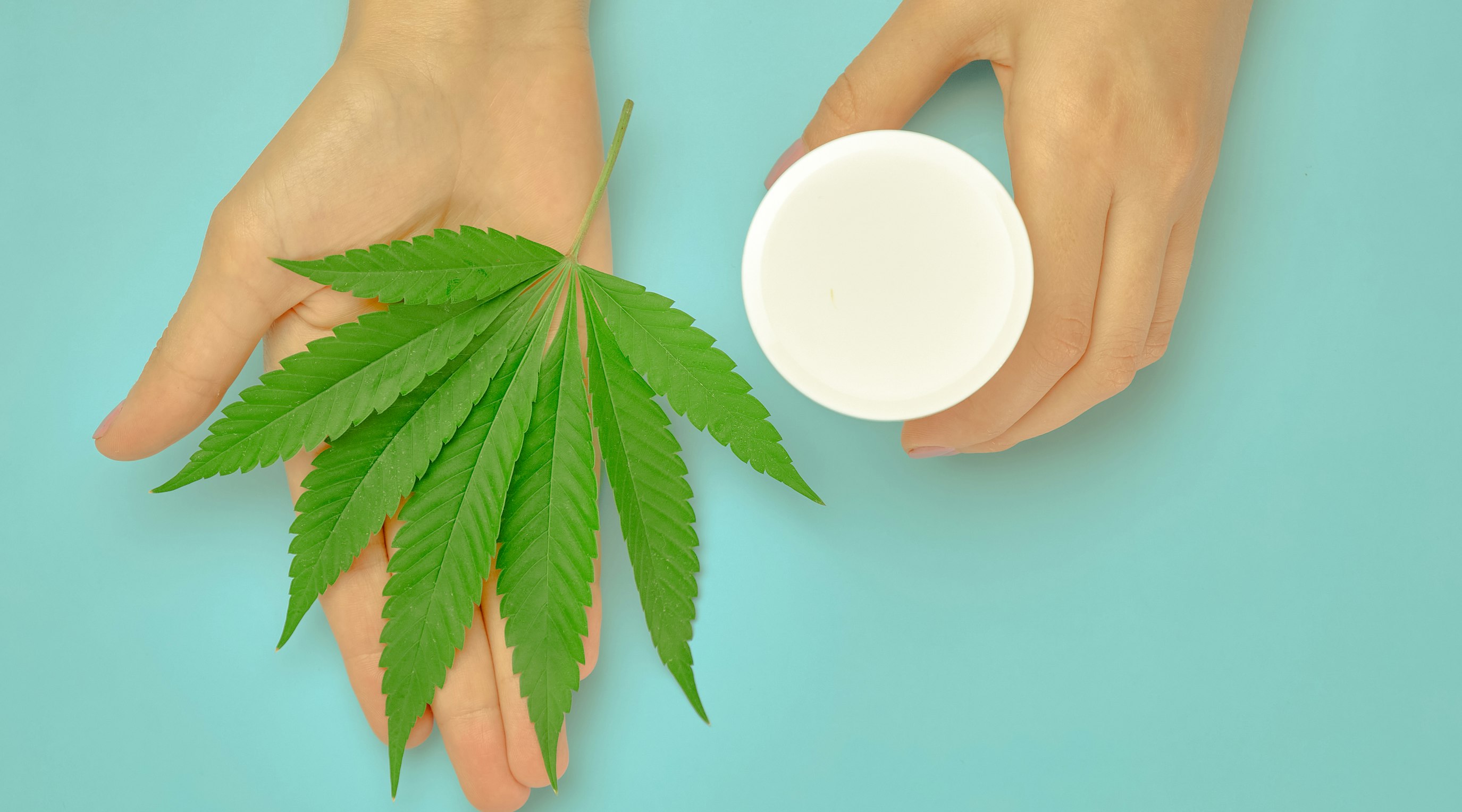Does CBD cream interact with medications?
6 min read
Editorial Team
Contents
What is CBD?
Cannabidiol, classified as a phytocannabinoid, is a natural compound produced by the cannabis plant. It is known for its various beneficial properties and effects. CBD has a wide variety of potential health benefits that can help reduce problematic symptoms.
Emerging clinical research has revealed the remarkable potential of CBD in alleviating pain, reducing inflammation, addressing neurological conditions, managing autoimmune disorders, and mitigating anxiety. Moreover, CBD showcases promising results in treating various skin conditions, including acne, dermatitis, psoriasis, eczema, and alopecia. In particular, CBD topicals, such as CBD cream, are commonly used to target external symptoms for effective relief.
Why do people use CBD cream?
The skin is the body's largest organ, serving as a protective barrier against infection-causing pathogens. It should come as little wonder that it can be vulnerable to disorders causing discomfort and irritation.
While numerous medications exist for these conditions, many individuals show resistance to treatment. Therefore, new approaches and compounds are necessary. In this regard, CBD has emerged as a promising candidate due to its remarkable soothing properties and low toxicity.
Is CBD safe to take with other prescribed drugs?
Yes, for the vast majority of patients, CBD is perfectly safe to take whilst taking other pharmaceuticals.
Whilst CBD is relatively safe, non-toxic and generally well tolerated, there are a few side effects that we all should be aware of. The number of people who have a negative experience with CBD where side effects occur is low but possible.
Negative side effects are more commonly observed when CBD is ingested orally, as it undergoes liver processing and enters the bloodstream in higher concentrations compared to when CBD cream is used. When CBD is applied topically, only minimal amounts are absorbed into the bloodstream. However, due to the presence of cannabinoid receptors on the skin surface and in muscle tissue, cannabis topicals exert a localized effect.
What is a medical interaction?
When taking medication, it is crucial to be aware of any potential interactions with other drugs or dietary supplements. One notable example is grapefruit, which can interfere with various types of medications. To prevent overdose or hindered effectiveness, warning labels are added to these drugs' safety information. Similarly, CBD has the potential to interact with certain medications. If you are prescribed any medications, it is advisable to seek guidance from a medical professional.
Given that CBD cream can result in a minimal amount of CBD entering the bloodstream, it is prudent to be aware of potential negative drug interactions with other medications. If you have concerns about how CBD may affect your current or prescribed medication, we strongly advise you to consult with your healthcare professional at the earliest opportunity.
Some medications that may interact with CBD topicals and their combined side effects include:
- Anticonvulsants – dizziness, drowsiness, and coordination problems.
- Antidepressants – dizziness, drowsiness, dry mouth, disorientation.
- Blood thinners – increases the effect, and can increase the risk of bleeding.
- Cholesterol medications – can increase the risk of high cholesterol.
- Immunosuppressants – can decrease effects, increasing the risk of infection
- Sedatives – increased effects, drowsiness, dizziness, lethargy, sleepy, and coordination difficulties.
- Statins – increase the effect, and can cause muscle pain and liver damage.
Higher levels of CBD in your system can hinder liver enzymes from effectively metabolising other medications you're taking. This may amplify their potency and increase the likelihood of experiencing severe side effects associated with those medications. If you notice this while using CBD, it's crucial to promptly reach out to your doctor or seek emergency treatment.
More specifically, if you know you are taking a medication that interacts with the P450 enzyme in the liver, it is wise to talk to your medical professional as CBD can directly block this enzyme from working. CBD is fine to take if you are not taking medications that interacts with the P450 enzyme.
It is essential to remember there are no silly questions when it comes to your health and safety when taking medications.
Some additional tips for using CBD topicals safely are to:
- Start with a low dose and increase gradually as needed.
- Apply the topical to a small skin area at first and wait to see how you react.
- Avoid using CBD topicals on broken or irritated skin.
- Talk to your doctor before using CBD topicals if you are pregnant, breastfeeding, or have any underlying health conditions.
Clinical trials on CBD interactions with other medications
A study of 25 children was conducted on hard-to-treat epilepsy, where half of the participants were given clobazam and CBD. The results showed higher levels of clobazam in the children's blood that were administered CBD.
Whilst this was determined to be safe, children were advised to be monitored when taking these drugs in combination.
A subsequent study was conducted, this time involving a broader patient cohort comprising both adults and children who were taking AEDs. During the study, the participants were administered Epidoylex, a cannabis-based medicinal product containing 99.9% pure CBD with no other cannabinoids.
The dosage of Epidoylex was gradually increased every two weeks. Blood serum levels were monitored, revealing that while most participants maintained therapeutic levels, elevated levels were observed for two specific types of AEDs: clobazam and desmethyl clobazam, surpassing the therapeutic range.
Final thoughts
It is essential to remain vigilant when applying CBD topicals in combination with other medications. While potential interactions may be low, it is wise to check for any warnings or drug interactions before use.
If you are prescribed any medications, speak to your healthcare professional about your concerns and inquire if taking CBD cream is suitable for you and whether monitoring of levels will be needed.
Releaf understands that embarking on your medical cannabis journey can be intimidating – that’s why we offer tailored monthly packages, specialist consultations for medical cannabis, and our unique medical cannabis card to give you the peace of mind that your treatment is protected, all based on your medical cannabis prescription.
Share article
Did you like this article?
It is important to seek medical advice before starting any new treatments. The patient advisors at Releaf are available to provide expert advice and support. Alternatively, click here to book a consultation with one of our specialist doctors.
Elevate your wellness with medical cannabis
Get comprehensive care, convenience, and confidence with an all-in-one treatment plan.
Am I eligible?Authors
Editorial Team
Article written by the Releaf Editorial Team, a group of seasoned experts in cannabis healthcare, dedicated to enhancing awareness and accessibility in the field through their wealth of knowledge and experience.
Editorial Policy
All of our articles are written by medical cannabis experts, guided by strict sourcing guidelines, and reference peer-reviewed studies and credible academic research. Our expert clinical team and compliance specialists provide valuable insights to ensure accuracy when required. Learn more in our editorial policy.
Need more help?










